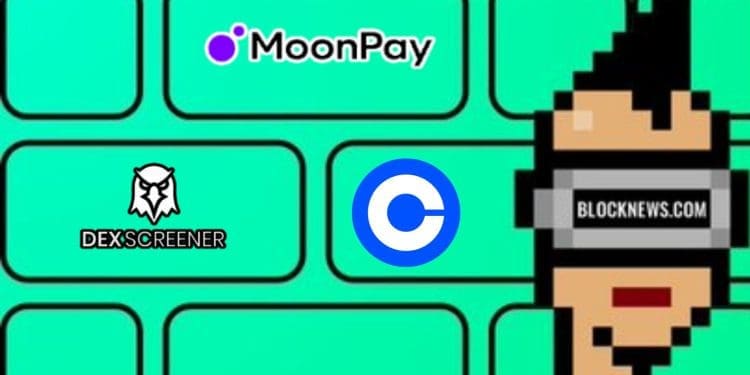In this recap of the crypto world, let us explore the events and news that had the most significant impact in the past week. Our focus will be on the following developments:
- Truth Labs Introduces Portals
- Solana Adds “Actions” and “Blinks”
- DexScreener Introduces Moonshot
- Coinbase Officially Sues SEC and FDIC
- Trump Vs Biden Debate
Truth Labs Introduces Portals
Truth Labs, the creative force behind Goblintown, has launched an innovative platform called Portals, designed to enhance the longevity and adaptability of NFT collections. This new initiative allows NFT holders to transfer their digital assets across different blockchain networks, offering unprecedented flexibility and future-proofing capabilities.
Portals currently supports the transfer of assets to several major EVM-compatible chains, including Arbitrum, Base, Blast, Optimism, and Polygon, with the option to return to Ethereum. Moreover, support for Solana is expected soon through a collaboration with LayerZero Labs.
It is also important to highlight that at present, only Goblintown and Illuminati NFTs, both developed by Truth Labs, can be bridged using Portals. However, there are plans to expand this functionality to include other NFT projects and collections.
Overall, this advancement introduces a significant shift in the NFT space, ensuring that projects can adapt and thrive despite changing market conditions. By enabling seamless movement across various chains, Portals provides a robust solution for maintaining the relevance and sustainability of NFT projects. This dynamic approach ensures that NFT holders have the tools necessary to keep their collections resilient and versatile.
Solana Adds “Actions” and “Blinks”
The Solana Foundation has unveiled two groundbreaking features, “Actions” and “Blinks,” designed to make cryptocurrency more accessible to a wider audience. These tools enable users to create and share transactions through a simple URL, effectively turning any website or application into a platform for crypto transactions.
“Actions” allows on-chain transactions to be initiated directly from websites, social media, and QR codes. By simplifying blockchain interactions, this feature makes it easier for both users and developers to engage with crypto products, thereby encouraging broader adoption.
“Blinks” converts any Action into a shareable link. This functionality means that websites and social media platforms can now facilitate Solana transactions, creating new hubs for on-chain activities.
With Actions and Blinks, transactions can now be started seamlessly from any online platform, eliminating the need for specialized apps. All in all, this innovative approach marks a major advancement in blockchain technology and user accessibility.
DexScreener Introduces Moonshot
DEXScreener, known for its powerful platform that allows traders and investors to monitor and analyze real-time data across multiple decentralized exchanges (DEXs) and blockchains, has introduced Moonshot, a groundbreaking cryptocurrency launchpad. This new platform is designed not only to capitalize on trending crypto coins but also to redefine the standards for token minting and trading on the Solana blockchain.
Moonshot enables users to mint their own tokens on the Solana blockchain for a minimal fee of approximately 0.02 SOL. What distinguishes Moonshot is its suite of integrated features aimed at enhancing visibility and liquidity for newly minted tokens.
Notably, Moonshot operates similarly to Pump.fun but distinguishes itself with its innovative liquidity migration process. When a token reaches a 500 SOL market cap, it automatically migrates to Raydium, a leading DEX on Solana, thereby enhancing its security and liquidity. Each token launched through Moonshot has a fixed supply of 1 billion and during the migration process, 150 to 200 million tokens are burned, reducing the supply and potentially increasing the token’s value.
Overall, Moonshot’s approach sets a new benchmark for token launches, providing a secure, transparent, and community-centric method for minting and trading tokens on the Solana blockchain.
Coinbase Officially Sues SEC and FDIC
Coinbase has officially filed lawsuits against the Securities and Exchange Commission (SEC) and the Federal Deposit Insurance Corporation (FDIC), accusing them of failing to comply with Freedom of Information Act (FOIA) requests. The cryptocurrency exchange alleges that these regulators are attempting to isolate the crypto sector from traditional banking services.
In its lawsuits, Coinbase claims that the SEC and FDIC have violated their FOIA obligations and are deliberately trying to “cripple” the crypto industry by cutting off access to banking services. This legal action follows Coinbase’s previous efforts to push the SEC for clear regulatory guidelines for the cryptocurrency sector. Through these lawsuits, Coinbase seeks to compel the federal regulators to release the information requested under FOIA.
Both the SEC and FDIC have declined to comment on the ongoing litigation. However, these lawsuits mark a significant escalation in the ongoing conflict between Coinbase and U.S. financial regulators regarding cryptocurrency oversight. The outcome of these cases could provide more transparency about the agencies’ stances on crypto regulation. Read more on this here.
Trump Vs Biden Debate
Thursday’s presidential debate, hosted by CNN, was highly anticipated by the crypto community, who hoped that Bitcoin and cryptocurrencies would take the political spotlight. The debate was expected to address the candidates’ contrasting views on cryptocurrencies, potentially influencing a significant segment of single-issue voters.
Throughout the debate, the crypto community eagerly awaited insights into how each candidate might shape future regulatory policies. However, as the debate concluded, it became evident that neither Biden nor Trump mentioned anything related to these emerging digital assets. Despite this absence, the debate highlights the increasing relevance of cryptocurrencies in national politics. The expectation that such a topic would be addressed at a presidential debate underscores how significant digital assets have become in the public and political discourse. So, while the candidates did not seize this opportunity, the event reflects the ongoing rise of cryptocurrencies as a critical issue for future political agendas. Read more on this here.














